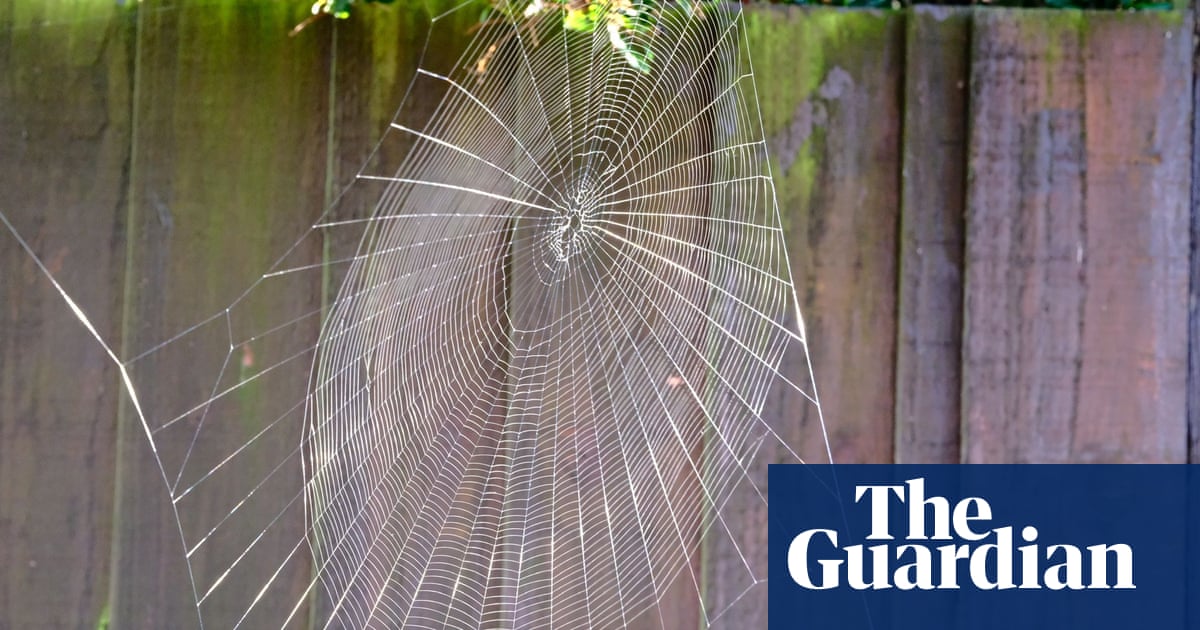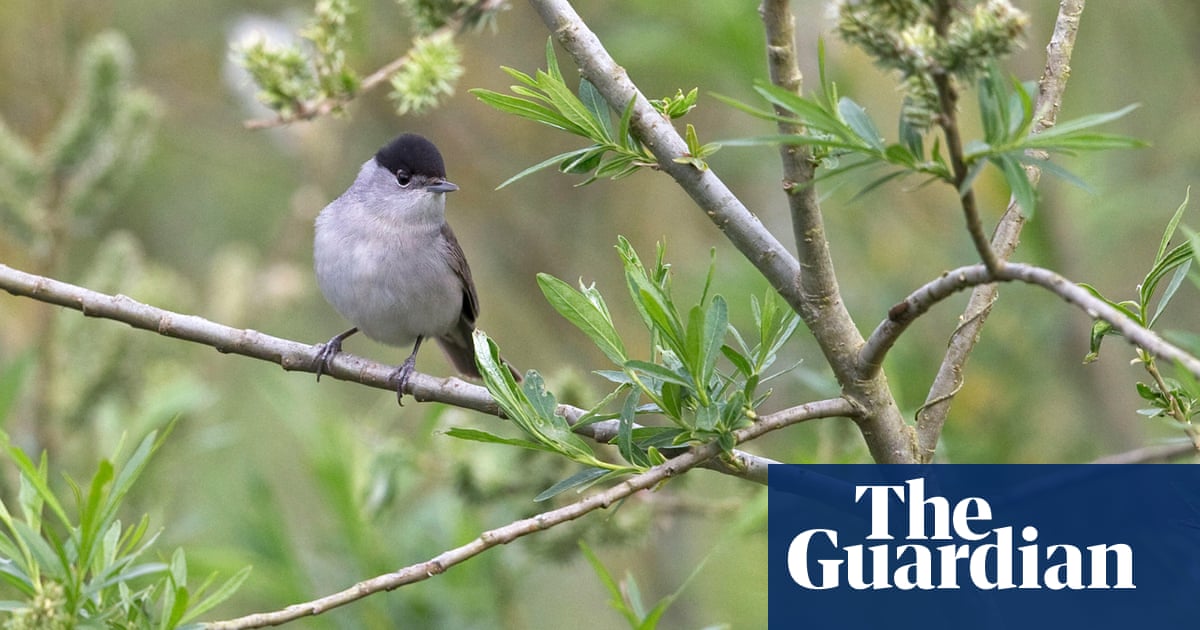
s I emerged from the deep shade of the riverbank woodland, it was pleasant to feel the warmth of the sun on my back again. Over on a nearby fence post, a Rhagium mordax, an inch long, seemed to be luxuriating in its heat too. This recently hatched longhorn beetle had just spent two years as a grub, tunnelling under the bark of a dead tree, subsisting on a diet of decaying wood.
It allowed me to approach within a few inches, close enough to admire its mottled brown and black wing cases, flecked with gold. Then it turned aggressively to face the camera lens. There is something unsettling about the agitated movements of these beetles, with their twitching antennae and long, articulated limbs. Maybe it harks back to childhood memories of watching the jerky stop-motion animation of the sword-fighting skeletons in the 1963 cult film Jason and the Argonauts.
A clash between two longhorns would be something to behold, and the way this one swivelled its head and strutted towards the camera, perhaps seeing its reflection in the lens, hinted at how the posturing prelude might play out. But then it opened its chitinous elytra (wing cases), unfurled its transparent wings like cellophane unwrapped from a bonbon, and was airborne.
This ribbon of woodland, mostly clinging to a rocky escarpment that confines the south bank of the River Wear, is paradise to a wood-boring beetle. Dead trunks and branches decay where they fall, digested by successive waves of fungi, providing a perfect habitat for beetle grubs that feed on the soft tissue layer under the loosening bark.
Eventually the spongy wood – its structural integrity now reduced to that of a biscuit dunked too long in tea – subsides into the humus. Hummocks in the ground layer of wood sorrel, ramsons and dog’s mercury mark the burial sites, but in the intervening period between death and decomposition, the fallen timber provides a breeding site for countless beautiful beetles – and, in turn, feeding sites for the great spotted woodpeckers that nest in standing dead trees. An R mordax grub would provide a perfect snack for a nestling.












